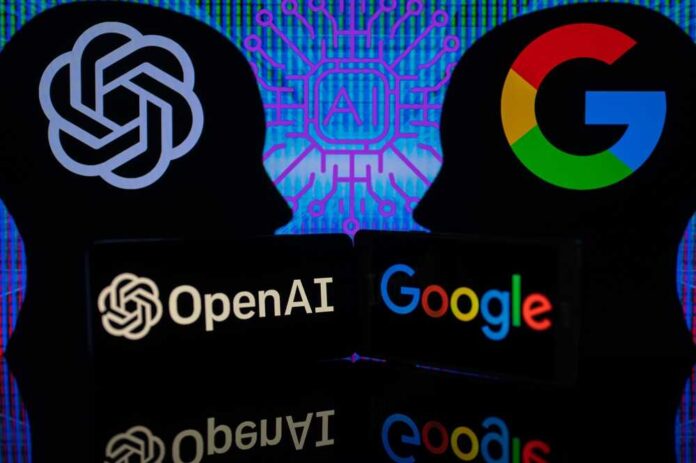
When Google and Microsoft ask people to trust them, most prefer to run in the other direction as both have a long pattern of dishonesty. Now they want Americans to have faith that their artificial intelligence systems will correctly diagnose diseases and keep the public healthy.
According to the Wall Street Journal, Google is developing AI specifically to answer medical questions. And this is hardly the only effort in the process to replace your family doctor.
There is a breakneck competition with Microsoft to develop AI products to be implemented by medical clinicians, according to the outlet.
An AI system developed by Google researchers can decide when to trust AI-based decisions about medical diagnoses, and when to refer to a human doctor for a second opinion. https://t.co/Sgm60QolkL
— New Scientist (@newscientist) July 17, 2023
Google is already testing its chatbot with medical consumers. Med-PaLM2 is reportedly more advanced in dealing with healthcare issues than other more general algorithms.
However, skeptics note that both companies have an established track record of left-wing bias, and it is unlikely that they will abandon their stances in AI development.
For example, Media Research Center proved that Google altered its search engines to assist Democrats before the pivotal 2022 midterm elections. It operates YouTube, which has a horrific record of censorship.
This became apparent during the COVID-19 pandemic.
And Microsoft, partially the brainchild of leftist billionaire Bill Gates, has a history of partnering with radical outfits. This was also clearly demonstrated during the pandemic as elites rushed to squash any and all dissent.
Will Big Tech have the best interests of the patient in mind or simply implement more radical social engineering?
And how do Americans feel about being diagnosed by an algorithm?
According to research earlier this year by Pew Research Center, the public is not at all thrilled with handing their medical decisions over to a machine. A full 60% of respondents said they would be “uncomfortable” if their provider depended on AI for their treatment.
Only 39% expressed their comfort with implementing AI in their health care.
Further, only 33% believe that using AI in health and medicine will lead to positive outcomes. The survey of over 11,000 U.S. adults expressed concern over alleged advantages of AI in diagnosing diseases and prescribing treatments.
Worse outcomes were predicted by 33% and 27% believed it would not make a large difference.
Clearly, Big Tech has far to go before the public will fully trust them with life-altering medical decisions. But the mad rush is already on, and they are counting on compliance as health decisions are increasingly delegated to machines.


















